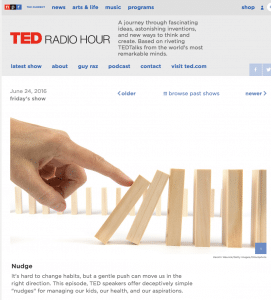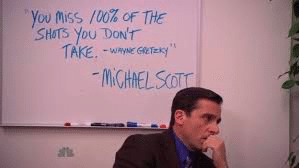Celebrate the Flops (Then They Don’t Hurt So Much): 7 SEL Mindset Tips
CompetencyWorks Blog
 This post originally appeared at Getting Smart on July 13, 2016.
This post originally appeared at Getting Smart on July 13, 2016.
Our 15-year-old son loves to flip.
The challenge is, when you flip, there is a good chance you’ll flop. It’s part of the deal.
I bet most of us have experienced–or at least have seen–a pretty nasty belly flop (or “smack” as real divers call it). When I asked college diving coach Gabe Kortuem how he teaches his divers to handle them, his response was quick and convicted.
“We celebrate them. Then they don’t hurt so much.”
The underlying message is pretty obvious. Mistakes are part of the learning process. When we treat them as such, they give us reason to celebrate.
Schools across the country are placing a great deal of emphasis on social emotional learning (SEL), success skills, mindsets, social skills, habits of success and more (call them what you will). Framing learning opportunities with a phrase like “celebrating the flops” can be a great springboard (pun intended) to reinforce SEL habits.
According to the Collaborative for Academic, Social and Emotional Learning (CASEL), one of the goals of social emotional learning (SEL) programs is improving student attitudes about self, others and school. Cognitive science research shows it can be done.
What if it became second nature for our responses to have such a positive forward-looking tone. Instead of “fail,” how about “not yet?” Instead of “You’d better not do that again,” what if we said “What did you learn from that one?”
Here are 7 practical SEL tips for teachers and parents to reinforce such mindsets in young people:
 1. Emphasize bravery over perfection. In a great NPR TED Radio Hour podcast called Nudge, Reshma Saujani (founder of Girls Who Code) speaks to our historical educational emphasis on perfection (especially with girls) rather than on bravery (more often reinforced in boys, yet key for learning from mistakes!).
1. Emphasize bravery over perfection. In a great NPR TED Radio Hour podcast called Nudge, Reshma Saujani (founder of Girls Who Code) speaks to our historical educational emphasis on perfection (especially with girls) rather than on bravery (more often reinforced in boys, yet key for learning from mistakes!).
When we socialize for perfection, students are less likely to take risks, which stifles the learning process. However, when we “nudge” kids toward risk-taking and model learning from failures, we make it part of the process and something to be celebrated.
This whole concept of “nudge” applies across the board regarding learning from mistakes.
2. Remember that growth mindset isn’t just about effort. It’s what we DO with the effort. Carol Dweck’s mindset research is widely understood, yet that there has been so much emphasis on the effort component that too many stop there. Revisiting growth mindset, Dweck highlights that effort is a means to an end–the overall goal is learning and improving.
In order to turn what can be frustrating effort into a breakthrough of learning, we need to learn to respond positively to “errors.” Dweck’s TED talk was also featured in the Nudge podcast.
4. Connect to positive mindsets. One of the habits of success identified by Next Gen Learning Challenges, which builds upon David Conley’s work (EPIC) is positive mindset, perseverance and learning strategies. A positive response to failure certainly is evidence of this.
5. Start a project (Practice PBL). Project-based learning provides built-in opportunities to make mistakes. Getting Smart is leading a year-long campaign, It’s a Project-Based World, to encourage project-based learning as an engagement lever leading to deeper learning outcomes. Projects are a great way to bring in authentic, hands-on and real world learning (and combat boredom!).
6. Be open to what is next. Celebrate flops with anticipation. In Saujani’s case, she had the courage to run for office. After losing a campaign, she admitted she wasn’t celebrating. Realizing that celebration isn’t always appropriate immediately, there’s room for an openness to what would be next. Without Saujani’s openness, we wouldn’t have Girls Who Code.
 7. Recognize that we miss 100% of the shots (or dives) we don’t take. A little Wayne Gretkzy (I know, some of you think Michael Scott from The Office was the first one to say this.) So, if nothing else, we can celebrate the fact that we tried something.
7. Recognize that we miss 100% of the shots (or dives) we don’t take. A little Wayne Gretkzy (I know, some of you think Michael Scott from The Office was the first one to say this.) So, if nothing else, we can celebrate the fact that we tried something.
In this year of the Summer Olympics we will get to watch lots of great dives (go @USADiving!) and celebrate the learning along the way.
Sometimes, it just takes a little “nudge” to get off the diving board.
See also:
- Add to the School Supply List: Mindsets Emphasizing Effort, Attitude, and Respect
- Education Evolving
- Get the Culture Right: The Most Important New School Factor
Mary is a Getting Smart Director of Strategic Design.